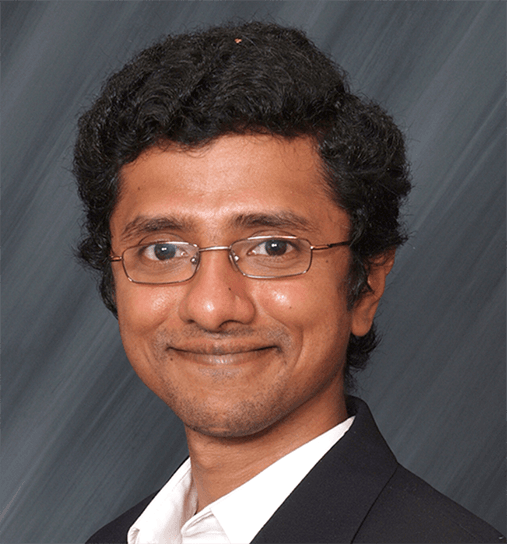The Ken Kennedy Institute's August Member of the Month, Dr. Ashok Veeraraghavan, Professor, Electrical and Computer Engineering; Professor, Computer Science. Dr. Veeraraghavan received his B.Tech. in electrical engineering from Indian Institute of Technology, Madras in 2002, and his master's and Ph.D. from the Department of Electrical and Computer Engineering at the University of Maryland, College Park in 2004 and 2008, respectively. Ashok joined the ECE Department in 2010. He was promoted to Associate Professor in 2017 and Professor in 2020.
Dr. Veeraraghavan's research areas include: computational imaging, compressive sensing for imaging, signal processing and computer vision, data science, neuroengineering, systems
What is your favorite book?
Flatland: A romance of many dimensions by Edwin Abbott.
How do you explain your research in one sentence?
I solve hard imaging challenges by co-designing optics, sensors and machine learning algorithms.
What is your favorite aspect of your research?
Ideation – ideas are beautiful objects – untouched by reality and the constraints of physics. Many times, reality and the constraints of physics force ideas to retreat from majesty to a place where they are merely utilitarian – but sometimes, every so often, they remain as they were – majestic, elegant and beautiful – and the pleasure one derives from participating in the creation of one of these ideas is the favorite aspect of research for me.
What challenges do you see in your research that you didn't expect?
I did not expect that I would have to learn some aspects of biology, medicine, astronomy, neuroscience, electromagnetics, and many such diverse fields in order to do my research.
How do you see computation and data advancing in the future?
They are critical building blocks already having an impact in all fields of research and I expect that role will only solidify and be integrated into different disciplines over the years to come.
What is a favorite experience with the Ken Kennedy Institute?
When I joined Rice University 11 years ago, I had not worked on a single health related project but one of my goals at Rice was to devote a portion of my research agenda in that direction. While it took almost 5 years at Rice, before I won the first federal grant to support my health-related research – K2I was an early supporter, providing me with student support within the first three years – student support that helped me produce preliminary results that eventually helped me get federal funding to establish this arm of my research program long-term.

